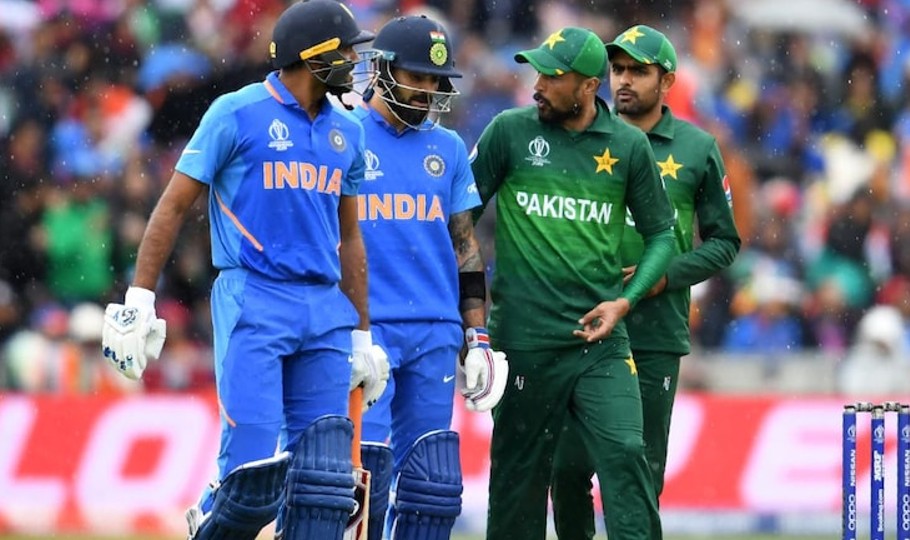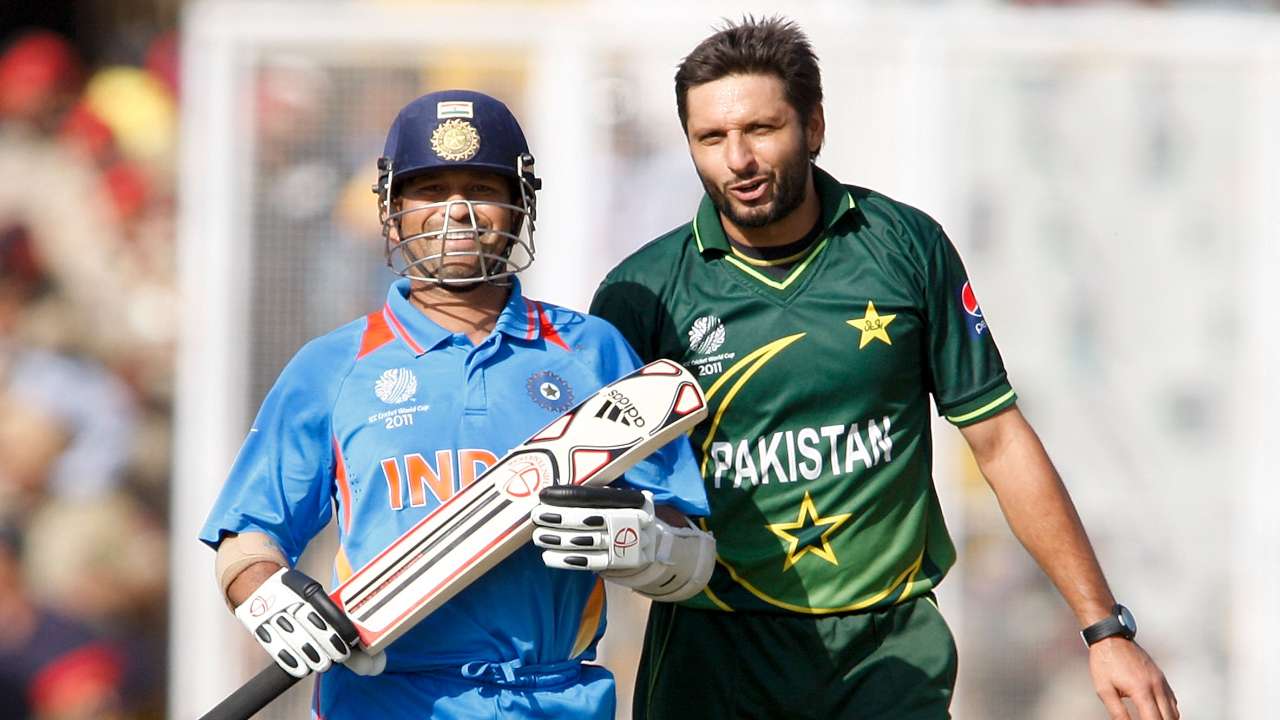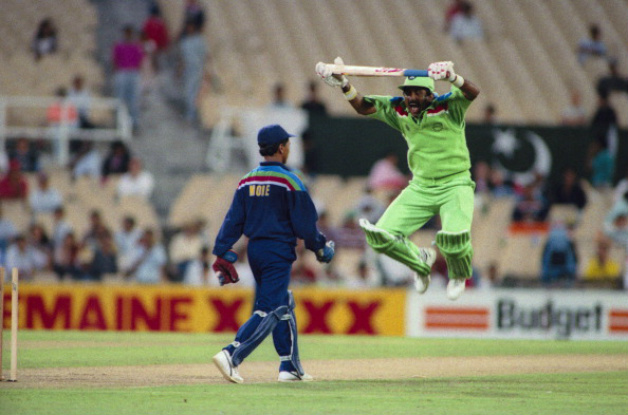
India vs Pakistan: After ice age, Super Sunday to see sparks fly
India-Pakistan clashes don’t need sub-texts to elevate their profile, but when they do make themselves available, what do you do?

For four years in a row, between 2004 and 2007, India and Pakistan played as many Test series — two each on either side of the border. Since the last of those showdowns — in India in late 2007 — they haven’t faced off in the longer version.
This Sunday, India and Pakistan will meet each other in the shortest format of the game, the T20 World Cup in Dubai, after a significant gap.
In the last decade, the only bilateral contests between the Asian giants unfolded in India in 2012-13, when Pakistan came over for three One-Day Internationals and two T20s. It was to herald the resumption of cricketing ties between the two nations beyond the ambit of continental and global competitions. Typically, given the fast-changing dynamics of Indo-Pak relations, it singularly failed to meet this objective.
India and Pakistan have been restricted to playing each other in multi-country competitions — be it the Asia Cup, the T20 World Cup or the 50-over World Cup. There has been a significant blunting of the edge to the rivalry, a definite downsizing of the jingoism and misplaced sense of patriotism when the Blues and the Greens line up.
Whether that is a sign of maturity, or relative indifference even as passions are sought to be whipped up by frenzied media outlets, is open to debate. The fact is, while India vs Pakistan still excites and enthralls, it doesn’t incite and inflame like it once used to.
Not just another match
And yet, it is not just another cricket match. No way — despite players from both sides playing it ‘cool’ and hiding behind platitudes to professionalism.
The first time India and Pakistan squared off in the World Cup was at the Sydney Cricket Ground (SCG) in March 1992. Sachin Tendulkar played the lead role as Mohammad Azharuddin’s men comfortably clinched a low-scoring encounter.
A few months down the road, Tendulkar had come to Hyderabad as part of a strong Mumbai contingent for a domestic tournament. When we caught up with him, talk eventually meandered towards the World Cup, and the match against Pakistan. “I was the Man of the Match,” Tendulkar reminded us — as if we needed reminding. It was impossible to miss the feeling of pride, the emphasis on ‘I’.

Victory in Sydney was to kickstart a remarkable sequence that has seen India win every World Cup match between the sides, in both limited-overs versions. Tendulkar himself has lorded over triumphs in South Africa (2003) and the semi-final in Mohali (2011), with further Player of the Match heroics. In 50-over World Cups, India have a commanding 7-0 hold over their continental neighbours, whereas in the T20 World Cup, it’s a healthy 5-0 sweep, including victory in a bowl-out at the inaugural 2007 tournament in South Africa when the match ended in a tie in regulation play, and the final.
It’s impossible that neither side will be unaware of the lopsidedness of their World Cup rivalry when they lock horns in Dubai on Sunday (October 24) as they kick off their campaigns to join West Indies as multiple-time champions of the T20 World Cup. True, they won’t dwell on it a great deal, because that won’t serve any purpose. But both will feel a tinge of additional pressure — Pakistan to arrest an alarming trend, India to maintain an impossible clean sheet.
What drives the rivalry
India-Pakistan clashes don’t need sub-texts to elevate their profile, but when they do make themselves available, what do you do?
What is it about taking on each other that rouses emotions in players? That inspires them to rise above themselves? To invest more in the outcome than otherwise?
It certainly isn’t hostility or animosity. No matter how tense political relations between the two nations have been, players have gotten along famously from the very beginning.
The commonality of food and language has been a strong binding force, and unshakeable bonds of friendship have flourished despite intemperate, vile attempts to drive a wedge between athletes by vested interests to whom peace is a red flag.

Yes, there are occasional flashpoints — Javed Miandad vs Kiran More, Venkatesh Prasad vs Aamir Sohail, Shoaib Akhtar vs Harbhajan Singh and Gautam Gambhir vs Shahid Afridi come readily to mind — but that’s no more than is part for the course in the searing cauldron of professional sport.
For the most part, there is mutual respect and admiration, perhaps augmented by an admixture of regret and outrage from the Pakistani ranks that they haven’t been welcome in the Indian Premier League for more than a decade now.
The whipping up of emotions is pretty much an extraneous contribution to what’s a sporting battle between two teams bearing the names of their respective countries. It’s by no means war minus the shooting nor is the result of the game tasked with altering the balance of power.
And yet, this is a contest that appeals to the larger audience. Australia vs England might be the oldest cricketing rivalry, but in the excitement stakes, it’s not a patch on India vs Pakistan. Agreed, population does play a big part in that, but just what cricket still means to the people of the two Asian neighbours adds to the drama and the colour and the hype and the atmosphere. Throw in excitable media on both sides of the Wagah, their eyes trained firmly on TRPs which can only climb when the mundane is hyped up as the extraordinary, and a clearer picture of the stakes involved begins to emerge.
Even the International Cricket Council isn’t immune to the pull of an Indo-Pak contest. The 2007 World Cup in the Caribbean fell flat on its face after the projected India-Pakistan showdown was a no-starter once both teams were eliminated in the first phase. India and Pakistan have squared off in each of the next three editions. The commercials go through the roof every time these two names are mentioned in the same breath, so why would anyone ignore the goose that lays the golden eggs?
On Sunday evening in Dubai, it will be a cricket match all right. But not just another cricket match. India vs Pakistan can never lend itself to that status, not in a million years.

